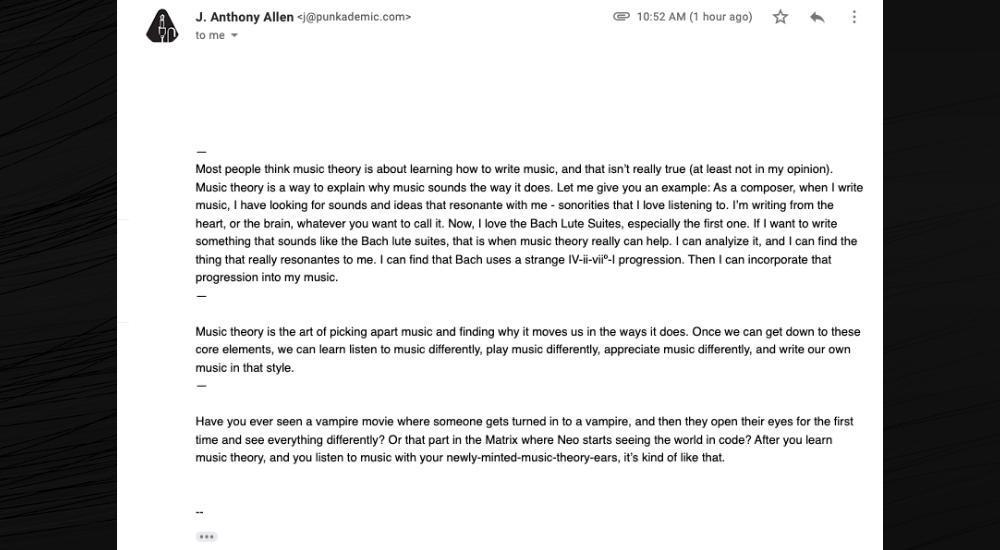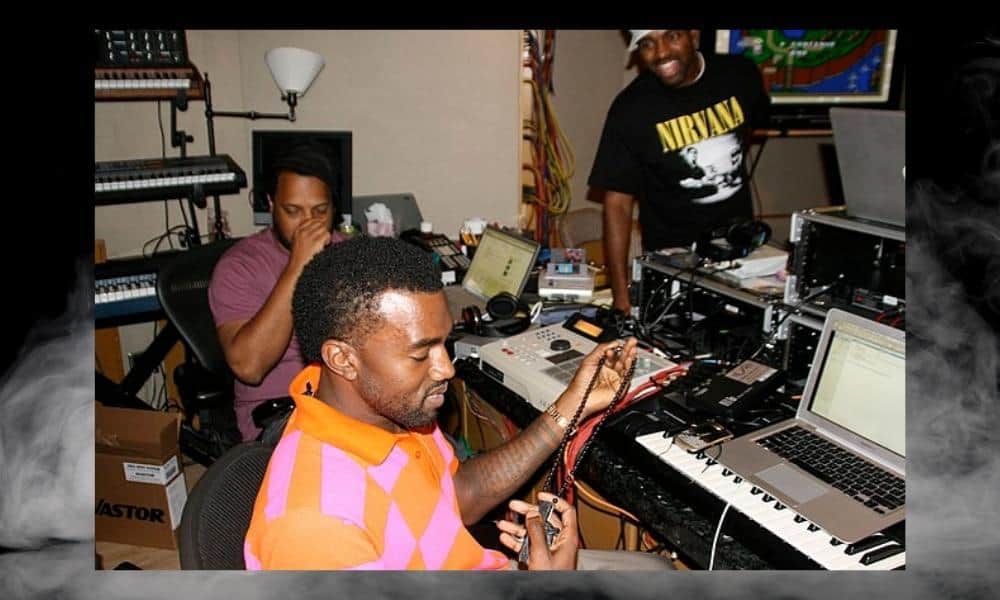It’s widely accepted that music theory can do a lot for a person’s comprehension, analysis, and communication skills in the context of music. Just being able to communicate what you’re doing with another musician is a great skill set. Most musicians, though, will likely never study music from the perspective of how it impacts society.
Their goal is to create and then perform music for everyone to enjoy. For musicologists, the goal is a little different because the study is too. So what are the differences between music theory and musicology? And how should we understand them?
Musicology is the study and analysis of music, either through a historical, sociological, or systematic lens. Music theory, on the other hand, is a sub-category of musicology. More specifically, it’s an attempt to explain why things sound the way they do, how to repeat it, and how to communicate it.
Producers and performers might hear about musicology and scoff at it. After all, not everyone wants to know about the evolution of guitars over the centuries. In my view, having someone study and document cultural phenomena isn’t a bad thing. But I digress, let’s dive into the topic a little more. It’s going to be a short one today though.
What Are the Main Differences Between Musicology and Music Theory?
1) Musicology Covers A Broader Range of Topics Than Music Theory

Typically, although musicologists might still spend some of their time reviewing the technical language that is music theory, they will mostly delve into broader topics surrounding music as a whole and how it relates to social phenomena like politics, class, culture, race, and more.
One of the topics that a specialized musicologist can look at, is what kind of impact music has on the brain. In this instance, they might study the brain patterns that are invoked by different kinds of music or the impact of music on brain development in different stages of life.
There is a branch of musicology referred to as organology, which takes a look at the history of musical instruments through the ages. A musicologist focused on classical orchestras and brass instruments might be able to tell you why a saxophone isn’t included in a traditional orchestra.
A musicologist with a focus on history might take a sociological approach to review the impact of Western music on the progression of Western society. Although this might involve the study of different kinds of music, it might not focus on the study of music theory in and of itself.
2) Music Theory is About Composition, Performance, Analysis, and Understanding

When attending music school, most musicians have the goal of becoming better at their craft. Studying music theory will typically be done with a concerted focus on the particular instrument and style that the artist is interested in.
Many popular musicians went to renowned music schools to study music theory and have become creators and performers as a result. One thing I should say though is that you don’t need to go to school to learn the fundamentals of theory.
Use the coupon code “producersociety” and you’ll get 20% off of Punkademic’s All-Access Pass which grants you access to their entire music theory course.
One such example of someone who did go to a big school for music was Charlie Puth, who majored in Jazz Piano at Berklee College of Music, according to this feature article by Steinway.
Even though Charlie is educated and qualified in an area of music – he may not be able to tell you about the specific neural pathways that light up when listening to Jazz.
A person with this kind of specialized knowledge might be some kind of neuroscientist that’s fascinated by music. And believe it or not, some people study this kind of thing and even write popular books about it. One that comes to mind is Daniel Levitin’s This Is Your Brain On Music.
An assistant professor at Augsburg University, J. Anthony Allen, had this to say when I asked him what the point of music theory was:

Students and professors of other kinds of musicology, like historical musicology, or ethnomusicology, are generally less focused on traditional music theory.
And as Jason said in the email above, music theory is focused on why things sound the way they do, and less on the cultural and political impact of it.
3) Unlike Musicology, Some Consider Western Music Theory As Finite
As is the case with many academic disciplines, you can take the study of music in many directions. There are thus many different kinds of musicologists to be found – even those who specialize in studying music’s impact on creating peace during times of war, like the one in this book on Ethnomusicology.
This stands in stark contrast to Western music theory, which some say has essentially been explored to completion. Some say we already know all the possible combinations of chords, all the keys of Western music, and every component that could make up a song.
Unlike Musicology, it seems like everything that could be named has been named, explained, and identified. The study of music theory has remained static for quite some time. On the other hand, It is conceivable that a musicologist might tell us how music impacts the way we connect with our pets!
This is just one way of looking at it. I wrote in my other article on why you don’t need theory to make beats that the piano roll and music production in DAWs could influence the way we understand music.
The gridlines and piano roll format, for one, is a fairly recent invention. The technology a lot of people use to make music now could affect how we understand it, but also how we produce it too.
I heard Misha Mansoor from Periphery say this on Rick Beato’s channel recently. He said that it was interesting how the newest generation of musicians have adapted to things like the piano roll or time-quantized drums.
For instance, having a drummer who can play exactly on the grid-line as if the drums were quantized (even though they weren’t).
4) To Be Considered a Musicologist – You Generally Have to Have Gone to School For It

For each musician that has gone to school to study music theory, there are probably a handful of musicians that have learned what they know without having a formal music degree. We’ve mentioned examples like Eric Clapton and Kanye West who famously dropped out of school.
It is possible to become widely known as a professional musician, without anyone questioning you or demanding that you possess some formal credentials to back that up. The proof is in the art that you create and the performances you put on.
Musicology, however, is almost strictly an academic field. According to this article by the Berklee College of Music, if you are a musicologist working in academia, that certainly means that you have obtained a graduate level of education specializing in music and another area of study.
What’s interesting though, is that the opportunities for musicologists have expanded beyond just academia in recent years. So if their goal is not to become a professor, there is an increasing amount of interesting work available for them.
For example, they can consult in cases that are focused on copyright law. They can be found working with music technology companies on software that recognizes and classifies the structure of songs. They can work in entertainment – the list goes on.
Important Things to Note About Music Theory and Musicology
1) You’ll Still Study Some Music History at Music School
Although going to school for music performance and music theory means that you’ll focus on a particular instrument and how to get better at it, it does not mean that you will not cover any other areas of music as far as how it relates to society.
Most modern music education will typically cover at least some aspect of music history, as well as the influential artists that made an impact on history in your focus area. Naturally, a classical pianist would learn about Beethoven and the like.
2) Some Musicologists Are Also Musicians
You cannot go to college right away and study musicology – it is an area that you would specialize in after completing your undergraduate degree in some related area.
This means that some musicologists, probably do have an education where they specialized in playing a particular instrument, so it would thus be wrong to assume that musicologists are generally not instrumentalists. Moreover, it would make sense to assume that someone who studies music for a living knows how to play an instrument.

 Written By :
Written By :